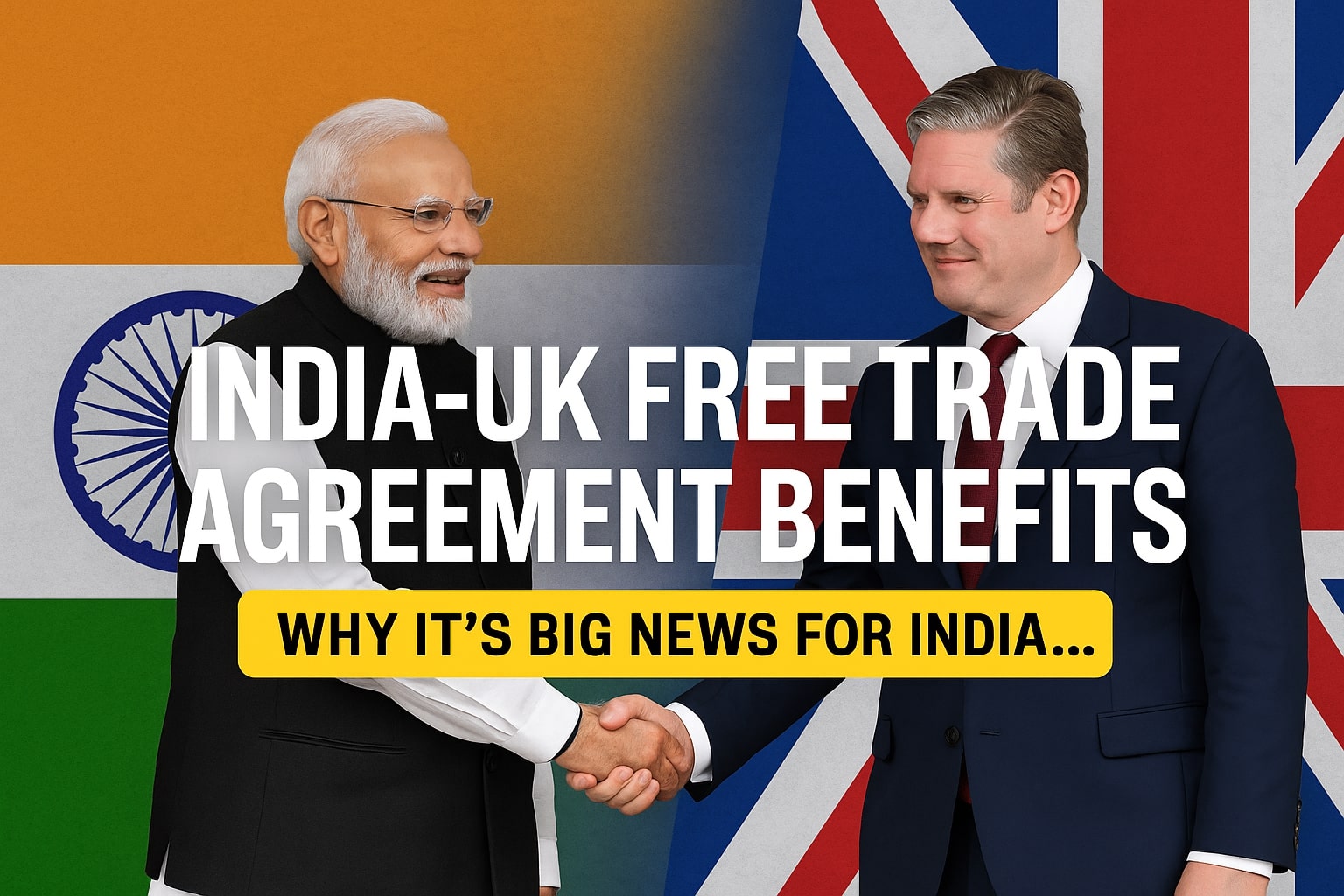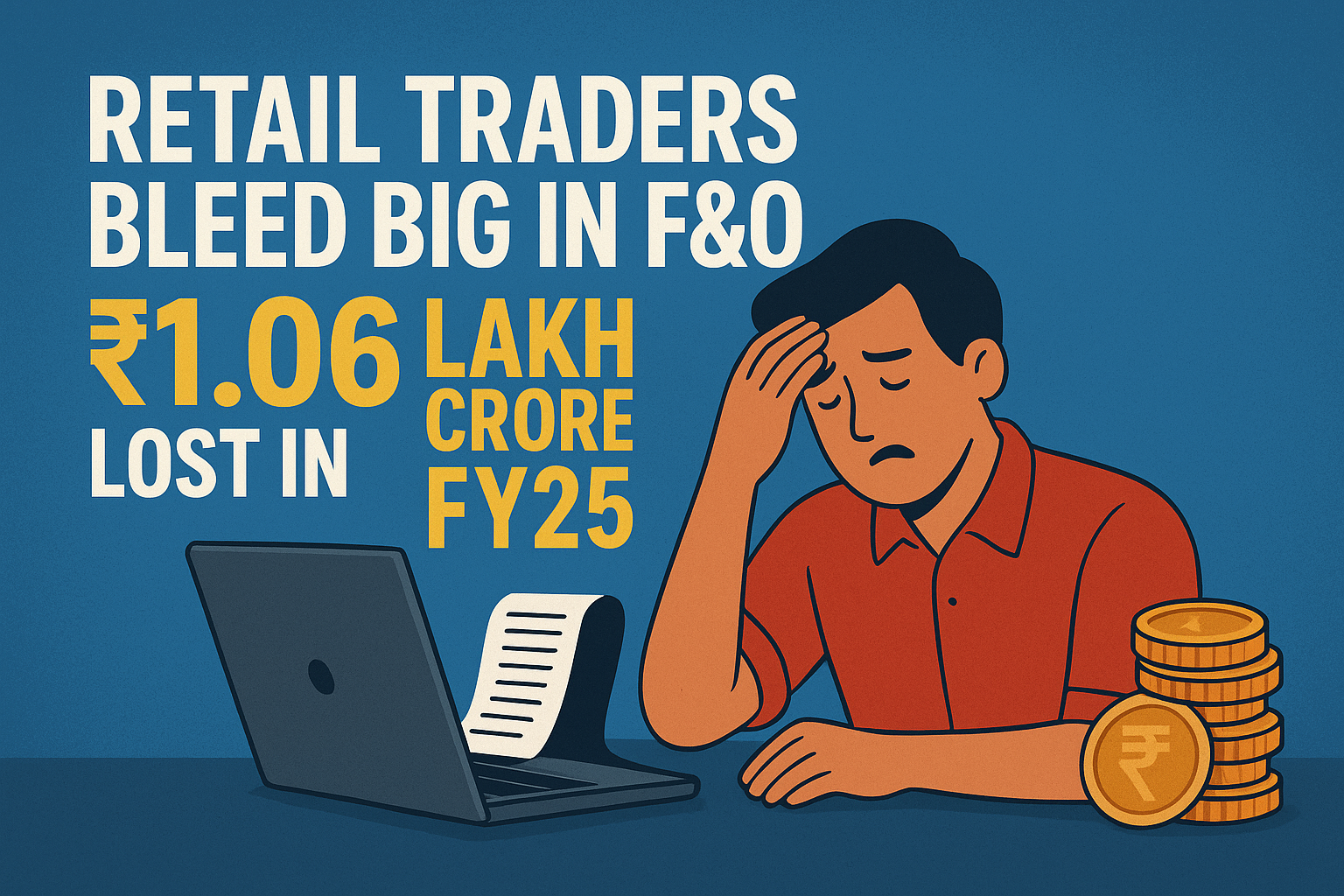
Let me tell you what’s happening—you might’ve heard that India and finally signed a major Free Trade Agreement (FTA) with the UK on July 24, 2025. That’s right. The Modi–Starmer handshake isn’t just symbolic—it’s a full-on economic game‑changer. Here’s why the India UK Free Trade Agreement benefits matter—and how they could reshape Indian sectors and investor portfolios.
1. What is the India–UK FTA, Really?
Simply put, it’s a comprehensive deal eliminating or slashing tariffs on virtually all goods and services between India and the UK. That means zero duty for 99% of Indian exports to the UK, covering textiles, pharma, engineering goods, auto parts, gems, and much more. Tariffs on UK whiskey, gin, and cars heading into India are also being slashed—from 150% down to 75%, eventually 40%, and auto duties from 110% to 10% under quota rules.
Both governments also plan mobility provisions—social security agreements and easier visas for professionals like chefs, yoga instructors—in the mix.
2. Why It’s a Huge Win for India
Exporters Rejoice – Textiles, Pharma, Leather, Gems & More
Textiles, apparel, leather goods, and sweet clusters like Surat and Tiruppur will see big gains. Indian textile exporters could enjoy a 20‑40% surge in UK shipments.
Similarly, pharma, gems, jewellery, and engineering goods now get duty‑free access. Imagine goods flying in tariff‑free to UK retail shelves.
FDI & Investments Pouring In
Expect UK firms to tap into India’s clean energy (Adani Green, Tata Power), infrastructure (L&T), and public markets. India also opens about £38 billion worth of public procurement tenders to UK bidders.
Strategic Export Power
India positions itself not just as a provider of cheap services but as a global trade hub. The deal aims to double bilateral trade to US$120 billion by 2030, and up to £25.5 billion more per year by 2040.
3. Sector‑Wise Winners: Stocks to Watch
Here’s where it gets tasty for portfolio planning:
| Sector | Why It’s a Win | Example Stocks |
|---|---|---|
| Textiles & Leather | Zero tariffs; stronger UK demand | KPR Mills, Arvind Ltd |
| Pharma | Easier access to UK generics markets | Sun Pharma, Cipla |
| Auto & EV parts | Export surge; quota-based tariffs | Tata Motors, M&M |
| IT & Fintech | Service mobility, smoother market entry | TCS, Infosys, Paytm |
| Green Energy | UK climate funds investing in India | Adani Green, Tata Power |
4. What It Means for Traders & Investors
Algo traders: look out for volatility spikes and correlation plays in export‑sensitive stocks around FTA update announcements.
Long‑term investors: this is the moment to “tilt your portfolio East of London.” Firms in textiles, pharma, auto components, and green energy could outperform.
Growth story: Expect India’s GDP bump by 0.06% (£5 billion/year), and UK GDP by 0.13% (~£4.8 billion/year).
5. Broader Significance: India’s Trade Pivot
This isn’t just about duty cuts. It marks a strategic shift in India’s trade policy—moving toward meaningful partnerships with developed economies at scale. Future FTAs will likely reflect the same ambition.
Simultaneously, India benefits from the China‑plus‑one strategy, as global MNCs diversify supply chains. The FTA signals India as an alternative manufacturing and export hub.
Bottom Line: Bet on Bharat’s Export Boom
The India UK Free Trade Agreement benefits are real, strategic, and multi‑sectoral. From tariff elimination to service mobility and investment corridors, this deal positions India as a serious global trade partner. Whether you’re trading algos or looking for long‑term equity wins, it’s time to lean into export‑oriented sectors and ride the growth wave.



